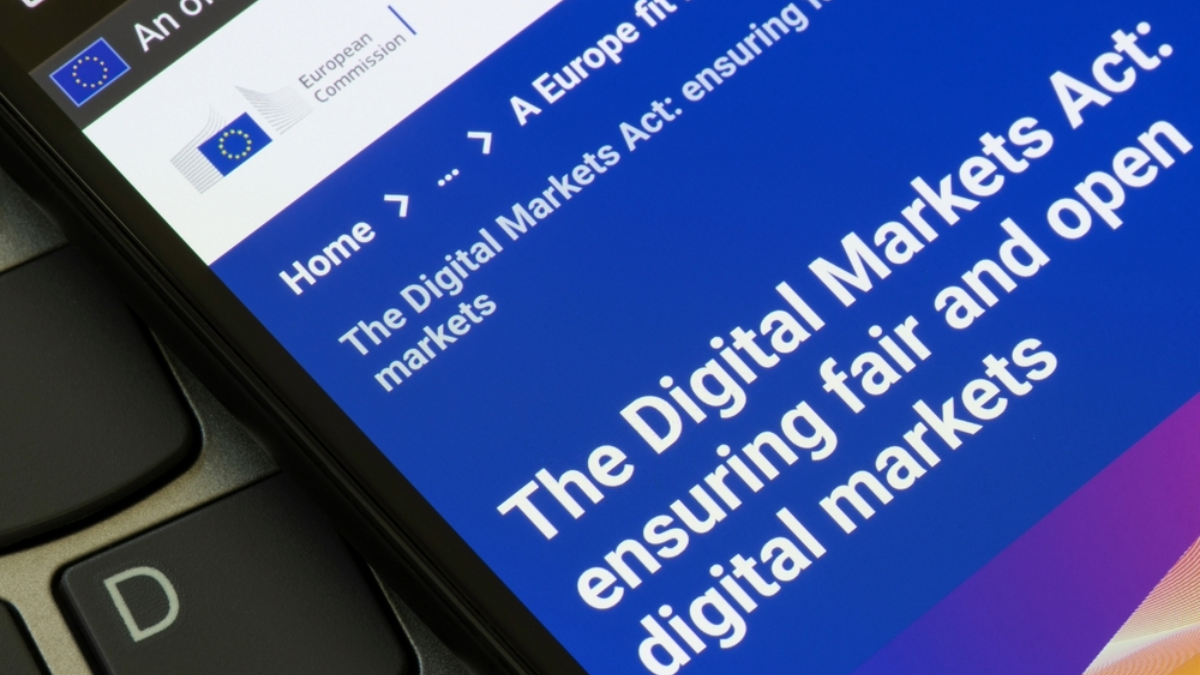Digital Markets Act Roundup: May 2024
Megan Kirkwood / Jun 7, 2024Overview. Ending its third month in effect, the EU Digital Markets Act (DMA) continues to develop in scope and practice. In May, Belgium implemented the Act into its state law, the DMA Working Group released a public statement on artificial intelligence, and the Commission designated a seventh gatekeeper. Below, the roundup highlights the most important developments related to the DMA from May 2024.
Related reading:
DMA implemented into National Belgian Law
On March 28, 2024, the Belgian Federal Chamber of Representatives adopted a new act implementing the DMA into national law and giving more powers to the Belgian Competition Authority (BCA), allowing it to support the European Commission in enforcing the DMA. Though the Commission enforces the DMA, which is applicable throughout the EU, “certain provisions must be implemented in national law to ensure legal certainty,” writes Carmen Verdonck and Nina Methens for Altius. Verdonck and Methens summarize the new act:
Mergers: Under Article 14 of the DMA, a gatekeeper will inform the Commission of any concentrations, defined as any business mergers or acquisitions. The Commission will notify the BCA of information received and publish the list of acquisitions annually. Based on that information, the BCA can refer a concentration to the Commission per Article 22 of the Merger Regulation.
Non-compliance investigations: Under Article 38(7) DMA, the BCA has the power to open a non-compliance investigation. While only the Commission may enforce the DMA, national competition authorities can provide support to investigate possible cases of non-compliance by gatekeepers. However, the BCA must inform the Commission that it is investigating a gatekeeper under national competition law or if it intends to impose obligations on a gatekeeper.
Complaints: The BCA “may receive complaints from all third parties, including business users, competitors or end users of a gatekeeper’s core platform services, as well as their representatives, regarding any practice or behavior falling within the DMA’s scope.”
Market Investigation: The Prosecutor General of the BCA may request a market investigation if there are reasonable grounds to suspect: 1)that an undertaking should be designated as a gatekeeper; 2)that a gatekeeper has systematically infringed one or more of the obligations laid down in Articles 5, 6 and 7 DMA, and that it has maintained, strengthened or extended its position as a gatekeeper; 3)more digital services should be added to the list of core platform services set out in Article 2(2) DMA; or 4)that the DMA does not effectively address one or more practices and that these practices are likely to limit the contestability of core platform services or to be unfair.
The Belgian Act was published in the Belgian Official Journal (Moniteur Belge) on May 3, 2024, and entered into force on May 13, 2024.
High-Level Group for the Digital Markets Act Public Statement on Artificial Intelligence
On May 22, 2024, the High-Level Group for the DMA convened for the third time in Brussels. This expert group comprises the Body of the European Regulators for Electronic Communications, the European Data Protection Supervisor, the European Data Protection Board, the European Competition Network, the Consumer Protection Cooperation Network, and the European Regulatory Group of Audiovisual Media Regulators. This group convenes to ensure effective enforcement of the DMA, give expert advice, and ensure regulatory alignment across different EU legislation.
During this meeting, the Group agreed on the need to coordinate enforcement regarding artificial intelligence (AI) applications, adopted a public statement that outlined how the DMA will interact with the AI Act, and announced its dedicated sub-group to discuss AI. It stated that the incoming “AI Act will complement existing legislation as the use of AI technologies is already today, subject to supervision from various perspectives under the competence of a number of supervisory authorities, including those which compose the Group.” The statement outlines the intention to enforce existing legislation in a way that harmonizes digital rules.
Specifically, the statement referred to the role of personal data in developing AI systems, stating data “must be collected, aggregated, processed and used in ways that are lawful, transparent and fair”, alluding to the role of General Data Protection Regulation (GDPR) enforcement as well as DMA provisions banning the cross-use of personal data across gatekeeper services. In addition, the statement refers to the role of the Digital Services Act and the AI Act in addressing “societal risks, such as the viral dissemination of deepfakes, where AI is used to create or manipulate synthetic content, and hallucinations, where AI provides false information.”
On the DMA, the Group writes, "data driven advantages and network effects which are leveraged by gatekeepers may be intensified, further entrenching existing gatekeepers, or leading to the emergence of new gatekeepers.” This advantage impacts the fairness and contestability of the digital marketplace, which the DMA intends to correct. The statement echoes the words of Margrethe Vestager at last month’s European Parliament’s Committee on Internal Market and Consumer Protection meeting. Vestager pointed out that if AI is used in a core platform service, it will be governed by the DMA, and the gatekeeper must illustrate how the AI-integrated service complies with the law. This news comes a week after Google announced its new large language model, Gemini, enabled search. It is currently only available in the US, but Google announced its expectations of rolling the feature out to more countries by the end of the year.
The Group summarizes that it intends to follow policy developments and explore the interactions between the DMA and other regulatory instruments; continue to exchange enforcement experience and regulatory expertise relevant to DMA enforcement, including with regard to AI; and ensure effective cooperation to ensure a consistent regulatory approach across the DMA and other legal instruments, presumably the GDPR, DSA, and AI Act.
Other Developments
The Seventh Gatekeeper and Other Gatekeeper Proceedings. On May 13, 2024, the Commission announced that it had designated Booking, the parent company of online travel agency Booking.com, as a gatekeeper under the DMA. The designation follows an investigation of Booking after its notification to the Commission on March 1, 2024, that it met the quantitative threshold of a core platform service. The Commission concluded that Booking “constitutes an important gateway between businesses and consumers,” making it a gatekeeper. Booking has six months to comply with the DMA and publish its compliance reports.
Two other companies, X and Bytedance, similarly notified the Commission that their respective advertising services met the threshold. While Bytedance’s TikTok is already designated as a core platform service, the Commission has decided not to designate its advertising division as a core platform service because it does not constitute an important gateway between businesses and consumers. X’s advertising division has also not been designated as a gatekeeper for the same reason, but the Commission announced that it would investigate X’s social networking service after X rebutted its eligibility to be designated a gatekeeper. The Commission says that X’s “rebuttal argues that, even if X is deemed to meet the thresholds, X does not qualify as an important gateway between businesses and consumers.” This investigation is due to be completed within five months.
More App Stores. In May, Cecilia D'Anastasio and Dina Bass reported for Bloomberg that Microsoft plans to launch an alternative app store to challenge both Google and Apple. D'Anastasio and Bass write that Microsoft plans to launch a web app store for maximum interoperability, as web apps are compatible with both iOS and Android devices, and first will offer Microsoft's own games, such as Minecraft, with plans to open the store to other publishers offerings down the line.
Authors

